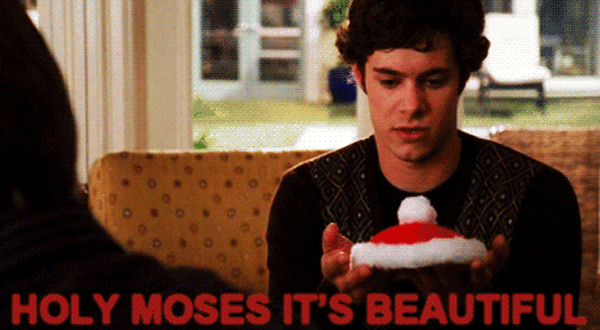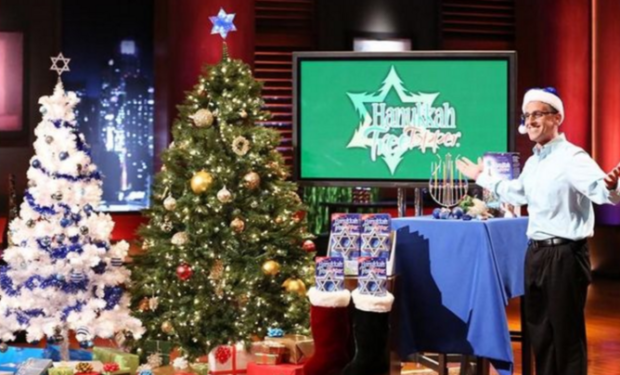-Yiddish Expression

From the television show 'The OC' December 2003
Nittel Nacht refers to a set of customs Jews practiced for centuries to refrain from Torah study on the evening of December 24th or January 6th in the Eastern Orthodox calendar. Torah study was forbidden and sets of rituals evolved where Jews would play chess, cards, sew (a favorite custom of the Lubavitcher Rebbe) or read a medieval book called Toledot Yeshu which tells the story of Jesus from the non-Christian perspective at the time. The book's contents were so well known and inflammatory as to be banned by the church and quoted by Martin Luther.
The first explicit reference to Nittel Nacht is in a 13th century work called the Hagahot Maimoniot where the author describes already widespread practices. While Nacht is certainly Yiddish/German, the word Nittel is either derived from the Latin 'Natalis' meaning birth (natal) or from the Hebrew Natal related to Talui which means to be hanged.
Guiding Questions:
1. What ought the Jewish posture be towards the secular world? Like a sluice, how much do we let in and when do we close the gate?
2. With the vast majority of world Jewry now living in less overtly anti-Semitic, if not philo-Semitic societies, should we continue to memorialize past negative events associated with another's religious holiday?
3. What does it say about Judaism's self-perception (perhaps insecurity) that we have guidelines for ensuring we are not celebrating another religion's holiday?
הגהות מיימוניות על הרמב"ם – הל' עבודה זרה (ט:ב)
כשמואל דאמר (ע"ז ז: יא:) בגולה אין אסור אלא יום אידם בלבד ופרשב"ם בשם רש"י דהיינו דווקא ניתל וקצח שהם בשביל התלוי.
Meditations on the Rambam - Laws of Idolatry (uncensored)
Meir HaKohen
13th Century Germany
As Shmuel says outside of the Land of Israel we are only forbidden on the day itself. Rashbam commentates in the name of Rashi that this prohibition only refers to Nittel (Christmas) and Easter that they are celebrated because of he who was crucified (hanged).
שו"ת תרומות הדשן (סי' קצה')
שאלה: בכמה עיירות נוהגים היהודים לשלוח דורונות לכומרים ולשלטונים ביום שמיני לניתל כשמתחדשין להם השנה, יש
חשש זהירות בדבר או לאו?
תשובה: יראה דיש ליזהר בזה שלא ישלחו ממש באותו יום אלא יום קודם או אחריו...
Responsa of the Terumat haDeshen 195
Israel Isserlein
1390-1460 Austria
Question: In many cities it is the custom for Jews to send gifts to priests and nobles on the Eighth Day after Nittel when they make their New Year. Should we be concerned about the danger of this or not?
Answer: It appears that we should be careful regarding this practice not to send it on the actual day of the festival (lest they think we are celebrating) but rather on the day before or after.
Connection between belief in G-d and Rabbinic Law
Gematria of Moshiach = 359
Gematria of David/Moshe = 358
- I believe with perfect faith that all the words of the prophets are true.
- I believe with perfect faith that the prophecy of Moses our teacher, peace be upon him, was true, and that he was the chief of the prophets, both those who preceded him and those who followed him.
- I believe with perfect faith that the entire Torah that is now in our possession is the same that was given to Moses our teacher, peace be upon him.
- I believe with perfect faith that this Torah will not be exchanged, and that there will never be any other Torah from the Creator, Blessed be His Name.

1855-1926, Poland
Shem Mishmuel Vol 2 p.75
Torah study at home was not an option as it was quite rare for individuals to own a library of books in those years. Thus anyone walking in the same direction as people going to Midnight Mass would indicate that a Jewish person would attend the services as well. Alternatively, anyone walking in the opposite direction of an entire town headed to church risked life and limb by inadvertently insulting the masses. There were even some regions where the Jewish community was told to turn out their lights on Christmas Eve for their own safety lest the Christians cast aspersions on those refusing to attend Midnight Mass. Some suggest that with Chanukah in close proximity to Christmas, the dreidel was a game invented in order to pass the time while sitting in one's home waiting out any fear of pogroms.


I was just lighting the Christmas tree for my children when [head Vienna rabbi Moritz] Gudemann arrived. He seemed upset by the “Christian” custom. Well, I will not let myself be pressured! But I don’t mind if they call it the Hanukkah tree — or the winter solstice.
Wherever it was to be, once established in a land of their own, 'a wondrous breed of Jews will spring up from the earth. The Maccabees will rise again. . . . The Jews who will it shall achieve their State. . . .

Rabbi Gavriel Zinner of Boro Park
Nittel Nacht customs were never established to be observed in the Land of Israel as Christianity had never been a dominant force there. It is also argued that the holiness of the Land of Israel overcomes any of the mystical concerns surrounding Christmas, especially those related to superstition and impurity.
In other communities the custom was to go to sleep in the early evening and then wake up for a Torah study session after midnight. It would reflect badly in Heaven for Jews to sleep soundly throughout the night while the Gentiles were up in their places of worship praying to God.


